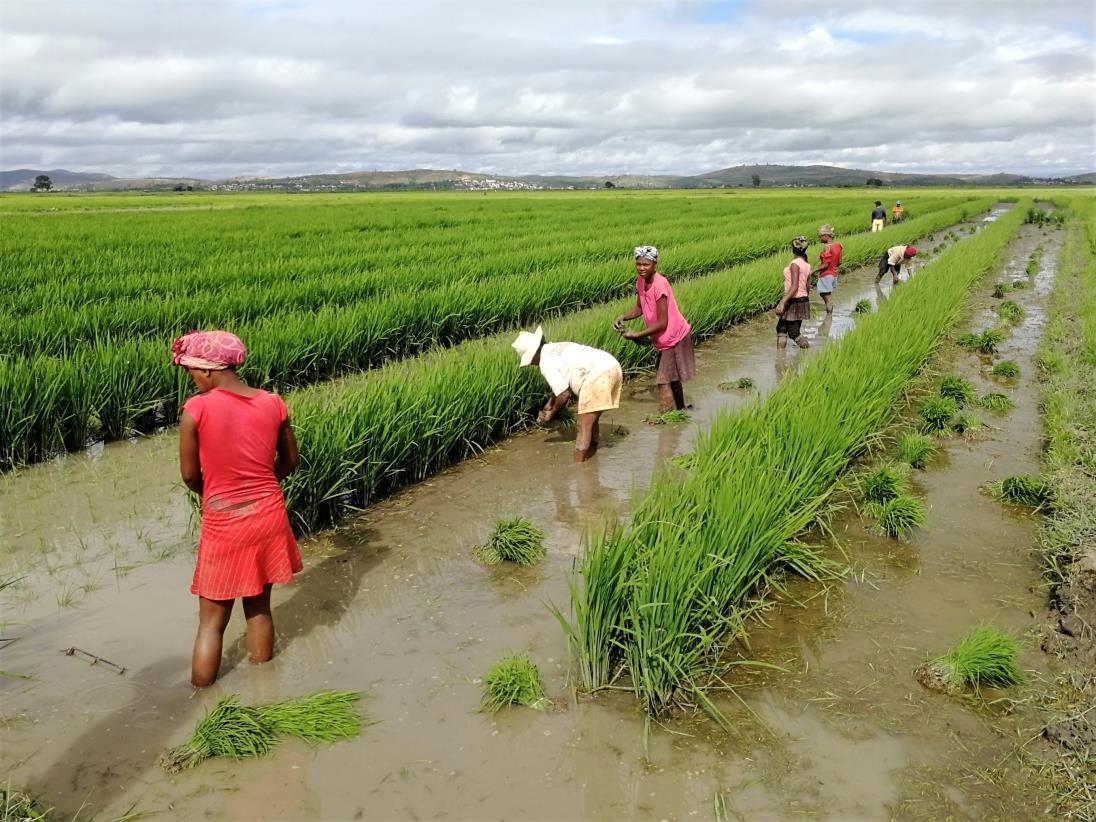Matik Kueth
Africa-Press – South-Sudan. Food security is emerging as the most pressing concern for the government of the Republic of South Sudan and its citizens. A report by the UN Office for the Coordination of Humanitarian Affairs (OCHA) estimated in 2023 that 7.1 million people would likely endure higher levels of acute food insecurity between April and July 2024.
With the number of returnees and refugees fleeing the Sudanese war hitting 731,000 as per the report by the Ministry of Humanitarian Affairs and Disaster Management, local production is slowly becoming an urgent matter for South Sudan.
South Sudan endured seven years of fighting and it continues to rank among the world’s most food insecure nations. Food insecurity and humanitarian needs have increased due to the continued intercommunal warfare, flooding, population displacement and disruptions to commerce, markets, and farming activities.
On April 3, 2024, President Salva Kiir Mayardit declared that food insecurity is a bigger problem facing every citizen across the country as he promised that the government had effective plans to curb the economic situation in the country.
President Kiir made this statement during the reopening of the Transitional National Legislature, emphasizing the significant actions the administration has taken to lower the nation’s commodity costs.
“The government has embarked on importing enough food supplies through the Ministry of Trade and Industry to subsidize prices that are affordable with citizens,” he stated.
He added, “Nevertheless, the government through the Ministry of Agriculture and Food Security, has a mega plan to boost and increase agricultural production this year across the country.”
He emphasised the need to assess the old agricultural schemes to enable South Sudan to begin cultivation and called on citizens to invest in agriculture to boost food security in the country.
Kiir further appealed to the developmental partners to focus on supporting small-scale farmers in South Sudan to increase food production.
Apart from these agricultural components, this sector needs expertise to develop and match its potential and expectation. Such can only be achieved through partnerships with advanced countries such as the People’s Republic of China, which has been instrumental in spurring agricultural production in the African continent through modern farming.
For instance, China, one of Madagascar’s international development partners, is crucial to the country’s efforts to boost its agricultural productivity especially for rice.
In Madagascar, rice is a staple food just like South Sudan but with long history of the crop production. This is due to China and Africa’s continued efforts to strengthen agricultural cooperation to increase the food security of the continent. However, in the past years, Madagascar’s rice production was unable to completely satisfy the needs of the local population due to a shortage of high-quality rice seeds and sophisticated planting procedures.
To address the low yields, China and Madagascar struck a partnership in 2007 which has paid dividends through enhanced hybrid rice types. Using Chinese hybrid rice seeds, more than 20 agricultural specialists from the Hunan Province in Central China have progressively traversed the country, assisting the locals in achieving their goal of food self-sufficiency.
The seeds, which have traveled thousands of kilometres from China, represent the efforts of Chinese technologists who want to help Africa address food security challenges by bringing China’s cutting-edge methods, technology, and experience to the continent.
Madagascar is just a small portion of the larger picture of the Chinese government’s long-term agricultural collaboration with Africa. Africa has ideal circumstances for producing agricultural goods. China is a crucial component in helping African nations attain independent and sustainable development. China has been contributing to the cause from Madagascar to Kenya, from Uganda to South Sudan. Last year, South Sudan and China signed an MOU on agricultural cooperation at the 2nd Forum of China-Africa Agricultural Cooperation in Hainan Province, China. And the Fungus Production Technology Cooperation Project is planned to be implemented in South Sudan under the Poverty Reduction and Agricultural Development Program of Forum of China-Africa Cooperation.
China has exported its cutting-edge agricultural technology together with the Belt and Road Initiative, greatly boosting global food security and raising the incomes and productivity of African farmers.
China and Africa’s agricultural cooperation has paid off, and there is a bright future ahead for an all-encompassing win-win alliance.
In his keynote address at the second Forum on China-Africa Cooperation in Agriculture in 2023, China’s Minister of Agriculture and Rural Affairs said that over the previous 10 years, China has established 24 agricultural technology demonstration centres across Africa and popularised over 300 advanced agricultural technologies, which have improved local crop yields by an average of 30 to 60 percent, helping over a million farmers in African nations.
The African Union’s (AU) commissioner for agriculture, rural development, blue economy, and sustainable environment, Josefa Leonel Correia Sacko, stated in the meantime: “Africa’s agricultural production, agro-industry, and agro-food value chain transformation can be greatly aided by China, as it is setting the standard for agricultural modernization through large investments in science, technology, and research.”
Source: The City Review South Sudan
For More News And Analysis About South-Sudan Follow Africa-Press






